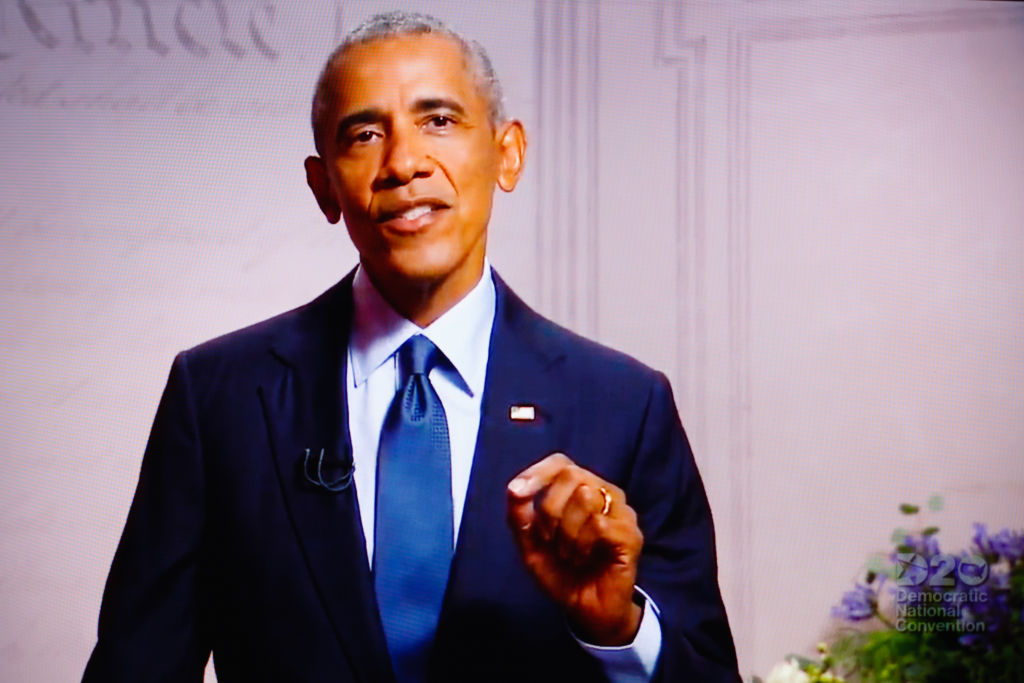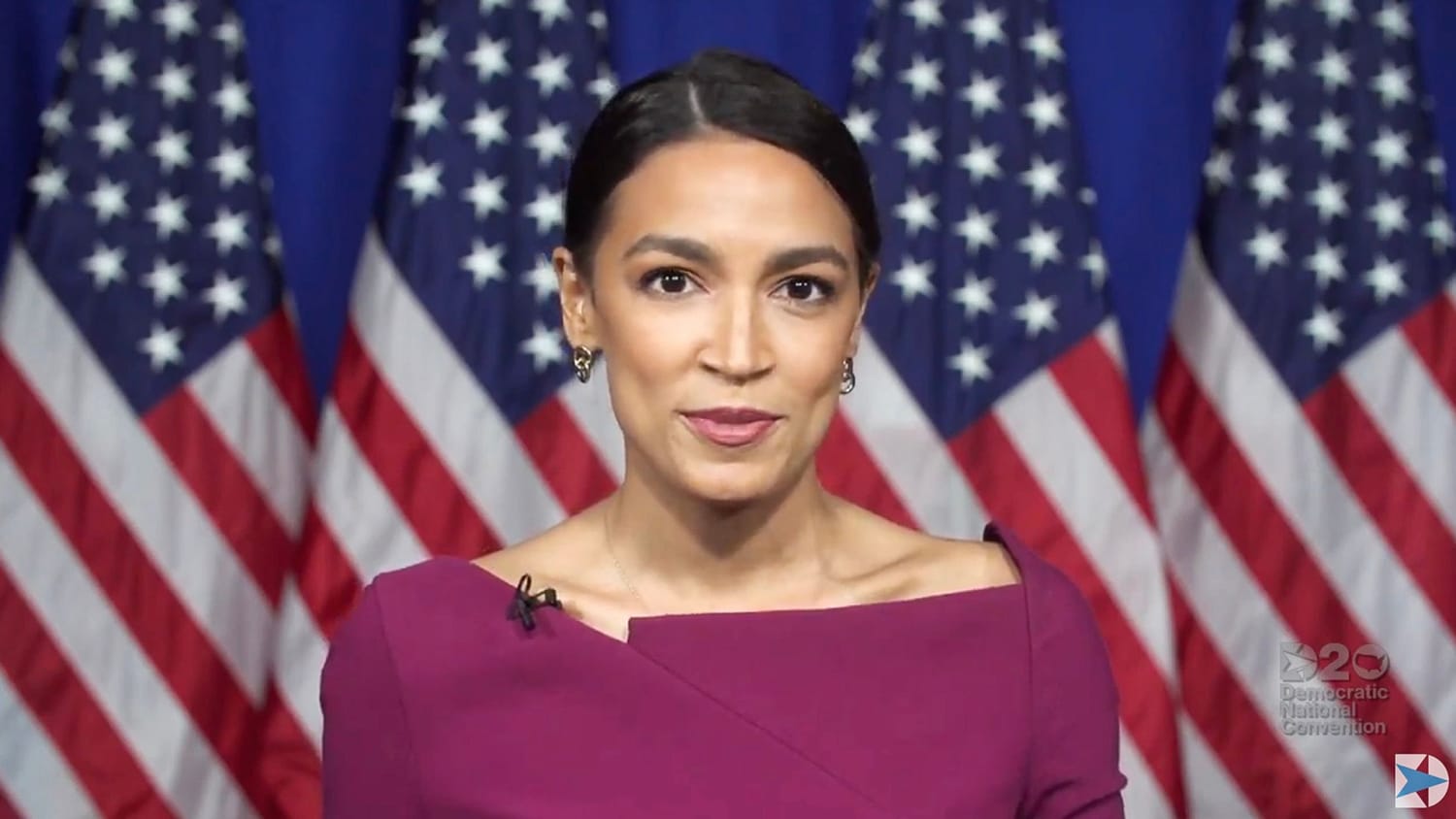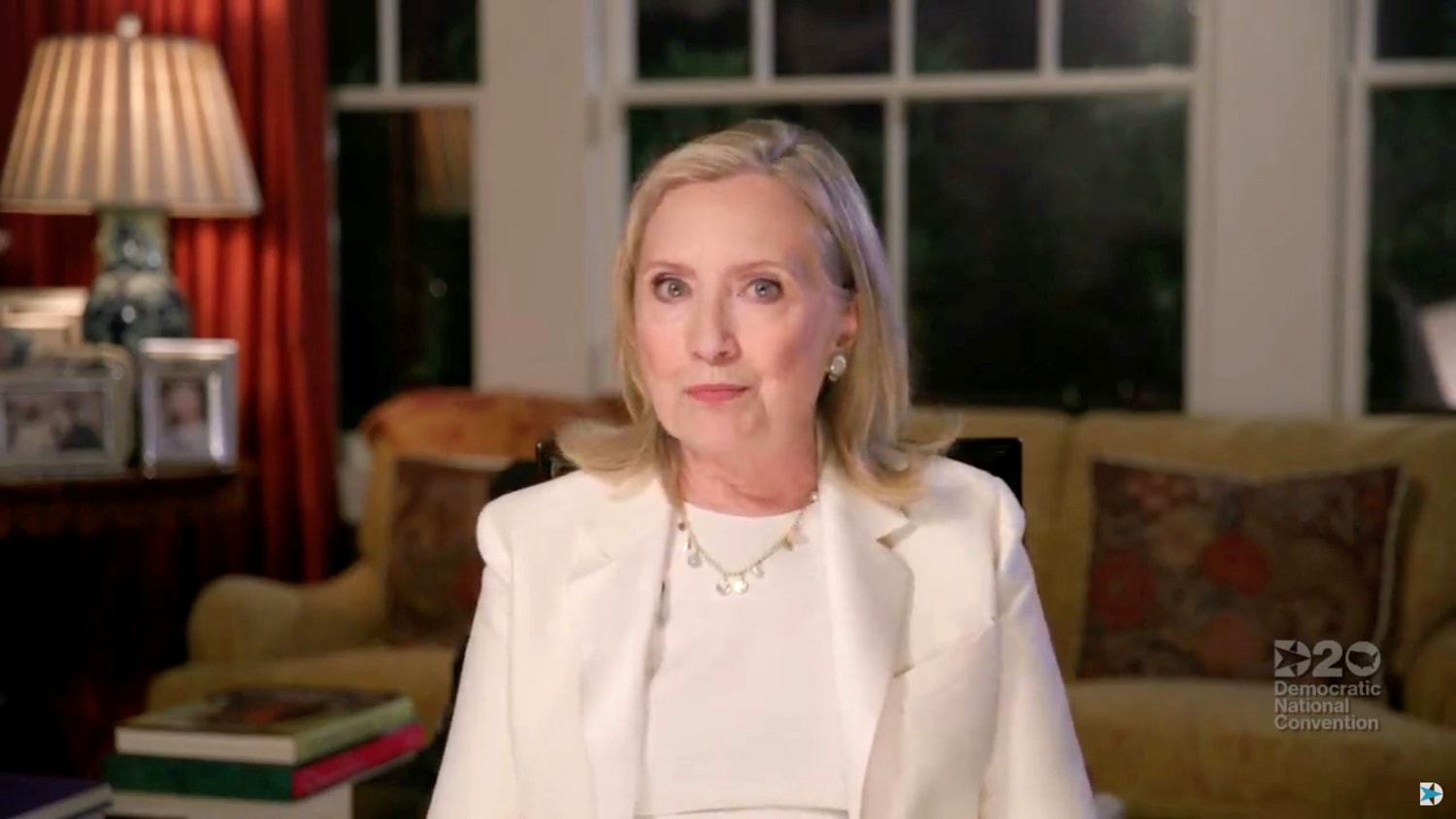/cdn.vox-cdn.com/uploads/chorus_image/image/67232474/GettyImages_1267249671.0.jpg)
4 takeaways from the third night of the Democratic National Convention
Democrats on Wednesday night formally nominated Sen. Kamala D. Harris (D-Calif.) as Joe Biden’s vice-presidential nominee, making her the first woman of color on a major-party ticket, while the last Democratic president, Barack Obama, issued an extraordinary rebuke of his successor, President Trump.
Wednesday night’s acceptance speech was an opportunity for Harris to redefine herself — after her 2020 primary campaign flamed out early and at a time in which she’s not just vital to Democrats’ 2020 hopes, but is set up to be their standard-bearer in future presidential elections.
Two lines stood out: “I know a predator when I see one,” and “There is no vaccine for racism.”
“I have fought for children and survivors of sexual assault,” Harris said. “I fought against transnational criminal organizations. I took on the biggest banks and helped take down one of the biggest for-profit colleges. I know a predator when I see one.”
That line, which is similar to one she used when campaigning for herself, came before Harris’s address explicitly turned to President Trump, but it was clearly intended to paint a picture. It was a subtly delivered but not terribly subtle allusion to the character of the man who occupies the Oval Office. In fact, Harris has previously followed up similar comments by directly invoking Trump, saying, “And we have a predator in the White House right now.” Harris also uttered it while talking about her past as a prosecutor — seeking to turn something of a liability with progressives into a positive.
Harris later described racial injustice as a “virus,” likening it to the coronavirus pandemic.
“This virus, it has no eyes, and yet it knows exactly how we see each other and how we treat each other,” Harris said. “And let’s be clear: There is no vaccine for racism.”
The speech was short on direct attacks on Trump — the traditional role of a running mate. But it seemed to pave a path for doing so next.

2. Obama’s big break with history
For years, Trump built his political career by using Obama as a boogeyman — mostly as the lead public face of the racist birther movement. Despite this, Obama in 2016 initially offered Trump the kind of well wishes we expect during a peaceful transfer of power. He even called their post-election conversation “excellent” and professed to be “encouraged” by it.
On Wednesday night, Obama was done putting anything amounting to a good face on things, utterly departing from traditional post-presidential protocol. While Obama has increasingly criticized Trump, on Wednesday he went further.
In his speech, Obama said that the man he hoped would rise to the task had utterly failed — and didn’t really even try.
“He never did,” Obama said. “For close to four years now, he’s shown no interest in putting in the work, no interest in finding common ground, no interest in using the awesome power of his office to help anyone but himself and his friends, no interest in treating the presidency as anything but one more reality show that he can use to get the attention he craves.
“Donald Trump hasn’t grown into the job because he can’t. And the consequences of that failure are severe: 170,000 Americans dead. Millions of jobs gone while those at the top take in more than ever.”
The comments echoed former first lady Michelle Obama’s speech Monday night, when she said Trump “cannot meet this moment. He simply cannot be who we need him to be for us.”
Barack Obama also suggested that Trump used law enforcement as political pawns and averted “facts and science and logic” in favor of “just making stuff up.”
“None of this should be controversial,” Obama said, before alluding to his 2004 convention speech: “These shouldn’t be Republican principles or Democratic principles. They’re American principles. But at this moment, this president and those who enable him have shown they don’t believe in these things.”
Obama added: “This administration has shown it will tear our democracy down if that’s what it takes for them to win.”
The former president spent most of his speech on the kind of high-minded rhetoric that characterized his 2004 speech and on vouching for his former vice president. But his decision to go so hard on Trump was surely one he arrived at after years of Trump laying waste to so many of the other norms of American politics. Democrats have trodden uneasily around just how much to go down that path themselves, and that made this a significant moment.
3. Hillary Clinton turns her disappointment into a call to action
Ever since unexpectedly losing the 2016 election, Hillary Clinton has blamed various factors — many of them credibly, given the narrowness of her loss — often re-litigating things even as some Democrats wanted to turn the page.
But on Wednesday night, she found a way to turn her disappointment into a perhaps more fruitful call to action. Reflecting on her own loss, Clinton implored Democrats not to be overconfident or take things for granted.
“For four years, people have told me, ‘I didn’t realize how dangerous he was,’ ‘I wish I could do it all over’ or worse: ‘I should have voted,’” Clinton said. “Look, this can’t be another woulda, coulda, shoulda election.”
She added later: “And don’t forget, Joe and Kamala can win by 3 million votes and still lose — take it from me. So we need numbers overwhelming, so Trump can’t sneak or steal his way to victory.”
That last line could be read as an allusion to Russian interference and other factors that Clinton has suggested made Trump’s win illegitimate. It could also be read as an allusion to Trump’s 2020 maneuvers with the post office. But the practical impact is probably the same.

4. Sidelining the left-wing insurgency
Around the time the convention began Monday, a quarrel broke out between Rep. Alexandria Ocasio-Cortez (D-N.Y.) and former Ohio governor John Kasich (R). Kasich, who would speak that night, had suggested that Ocasio-Cortez’s role in the modern Democratic Party was overstated, and she hit back hard. For a party that has largely tamped down tensions between its left wing and the establishment since Biden emerged as its nominee, it threatened to be an unhappy sideshow.
Since then, though, it’s been “kumbaya.”
For the third night in a row, a leader of the liberal movement in the United States spoke at the convention — Bernie Sanders on Monday, Ocasio-Cortez on Tuesday and Elizabeth Warren on Wednesday. But there has been almost no real dissension expressed. Sanders even offered an enthusiastic endorsement of Biden’s health-care plan, which he had attacked in the 2020 primaries.
Criticism of Biden — or even a hint of it — was never going to happen in such a prepackaged virtual convention. But that doesn’t mean there wouldn’t be avenues for dissension about the future of the party — as Monday showed. Thus far, there’s almost no indication of that. Apart from grumbling about the likes of Kasich and Colin Powell speaking, it’s the picture of a party united behind a common cause — at least for now.
